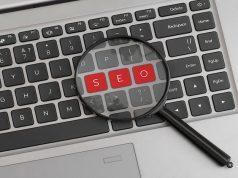Search Engine Optimisation (SEO) has long been the backbone of online visibility and customer acquisition for eCommerce businesses. As we enter 2025, the digital landscape continues to evolve—algorithms become more sophisticated, artificial intelligence reshapes user interactions, and competition intensifies across every vertical. Yet, despite these changes, SEO remains an essential pillar for eCommerce success. This article explores why SEO still matters for eCommerce sites in 2025, how it has adapted to new technologies, and why businesses cannot afford to ignore it.
The Persistent Power of Organic Search
For most eCommerce sites like Mattress Time, organic search continues to be a primary driver of web traffic. According to industry studies, over 50% of all site traffic on average comes from unpaid search results. While paid advertising and social media can generate instant results, these channels are often expensive and transient. In contrast, SEO provides reliable, long-term visibility by placing your products and services in front of customers who are actively searching for them.
As search engines refine their algorithms, user experience and relevance have become even more critical. Google’s focus on helpful content, usability, and mobile optimisation means that eCommerce sites must prioritise quality at every turn. SEO strategies that address technical performance, on-page content, and link building all work together to improve site ranking, which is directly correlated with increased revenue.
Changing Consumer Behaviours in 2025
The way people shop online has continued to evolve in 2025. Voice search, visual search, and AI-driven personalisation are now part of the customer journey. Consumers expect instant answers, intuitive navigation, and highly relevant results. With the rise of smart speakers and conversational AI tools, optimising for natural language queries and semantic search is no longer optional.
SEO adapts to these trends by focusing on intent-based keyword research, rich media content, and structured data. eCommerce brands that embrace these practices are better positioned to capture traffic from emerging search modalities. Additionally, with privacy concerns leading to less reliance on third-party cookies and paid targeting, organic search becomes an even more reliable way to reach consumers.
Building Trust and Credibility
Trust is the currency of online commerce. Consumers are more likely to buy from brands they find at the top of search results because those positions are perceived as endorsements from the search engines themselves. Reviews, ratings, and expert content all contribute to a site’s authority and reputation, and SEO ensures these assets are visible.
A well-optimised eCommerce site will also load quickly, be accessible to all users, and provide a seamless mobile experience—factors that both search engines and users value highly. In 2025, Google and other search engines continue to reward websites that meet high standards of trustworthiness and user satisfaction, making SEO a necessity for brands looking to establish and maintain credibility.
SEO vs. Paid Advertising: A Sustainable Advantage
Paid advertising costs continue to rise, and consumer scepticism towards ads is higher than ever. While paid campaigns have their place in a balanced marketing strategy, their impact is often short-lived. The moment ad spend stops, traffic dries up. With SEO, investment builds equity over time—each piece of optimised content, earned link, or technical improvement contributes to lasting visibility.
Moreover, SEO integrates seamlessly with other marketing channels. Content created for organic search can be repurposed for social media, email newsletters, or partnerships, amplifying its value. For eCommerce sites with thousands of products and a constantly changing inventory, SEO provides a scalable framework that supports growth without continually increasing costs.
Preparing for the Future: The Role of AI and Automation
Artificial intelligence and automation are reshaping SEO in 2025. AI-driven tools can analyse search intent, identify opportunities, and automate many technical aspects of optimisation. Machine learning helps marketers understand user behaviour and deliver more personalised experiences. However, the fundamentals of SEO—high-quality content, technical performance, and ethical link building—remain unchanged.
eCommerce sites that leverage AI for smarter keyword research, automated site audits, and predictive analytics will have a significant advantage. But the need for human creativity and strategy persists: crafting compelling product descriptions, building relationships for outreach, and understanding the nuances of brand positioning are all human endeavours that AI cannot fully replicate.
The Foundation
As digital commerce grows more sophisticated, the importance of SEO for eCommerce sites only increases. It is the foundation upon which sustainable growth, brand authority, and customer loyalty are built. In 2025, SEO is not just about ranking for keywords—it is about creating meaningful, lasting connections with consumers in an ever-changing online marketplace. eCommerce businesses that invest in SEO today will be better equipped to adapt, compete, and thrive tomorrow.









